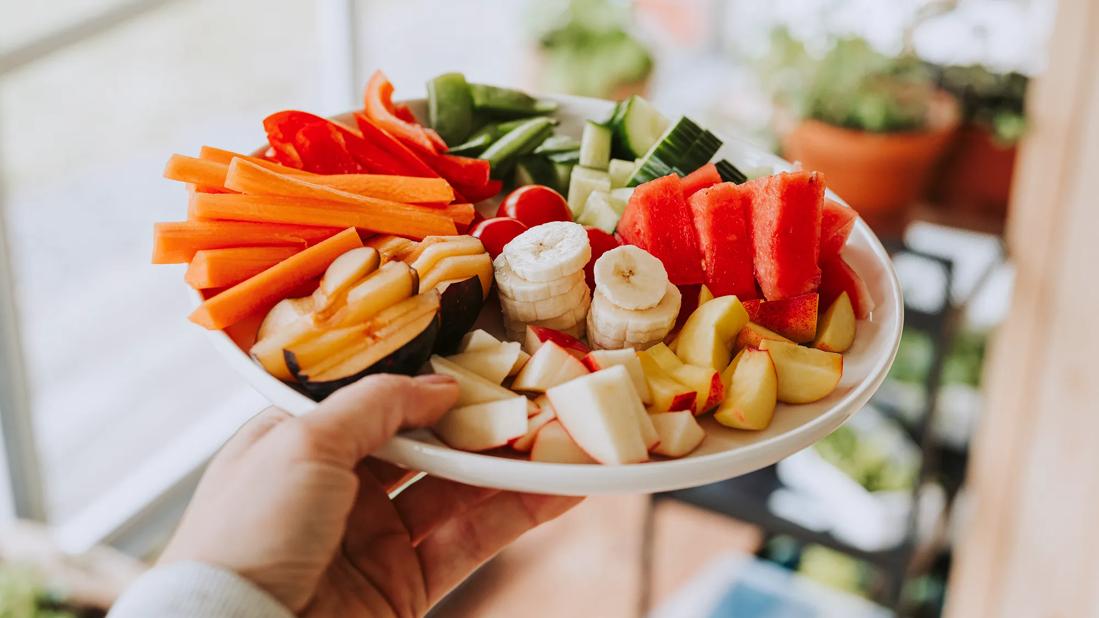This carbohydrate helps you avoid constipation, stabilize blood sugar, lower cholesterol and stay fuller longer

If thinking about fiber calls to mind sad, bland bran flakes and, well, pooping a lot, it’s time to rewrite the narrative. Fiber is a critical element of a healthy diet. And it does all kinds of important things for your body, including but certainly not limited to, keeping you regular.
Advertisement
Cleveland Clinic is a non-profit academic medical center. Advertising on our site helps support our mission. We do not endorse non-Cleveland Clinic products or services. Policy
So, what all does fiber do? Registered dietitian Beth Czerwony, RD, LD, explains.
“Fiber is a type of carbohydrate that your body can’t break down,” says Czerwony. And while that sounds like it could be a bad thing, fiber is actually something your body really needs.
There are two types of fiber: soluble and insoluble (or non-soluble). They serve similar but slightly different functions in your body and can be found in a variety of foods. Here’s how they work.
Nutrition experts rave about fiber — and for good reason. Here are the ways fiber benefits your body.
The bad news? Your digestive system can be finicky. You may experience diarrhea one day, constipation the next day. And you may have been diagnosed with irritable bowel syndrome (IBS).
Advertisement
The good news? Fiber can help keep things moving along your digestive system, keeping your bowel movements more regular. Fiber bulks up and softens your poop, which makes it easier to go to the bathroom.
A diet high in fiber can help lower your LDL (“bad”) cholesterol, especially foods with soluble fiber, which may stop your body from absorbing the bad cholesterol you eat in other foods.
“Soluble fiber binds with cholesterol and bile acids in the digestive tract, preventing it from being absorbed into the bloodstream,” shares Czerwony.
If you have prediabetes or diabetes, your healthcare provider will more than likely talk to you about the importance of fiber. And the reason? Fiber slows down how quickly your body digests food, as well as its glucose absorption.
“Soluble fiber slows down how fast the stomach digests, allowing small bursts of energy to be released into the bloodstream, which allows the body to process it slowly,” explains Czerwony. “Soluble fiber also turns into a gel-like substance in the GI tract, which slows down the digestion of carbohydrates.”
“Research shows that in countries where people consume high amounts of fiber in their diets, the overall rates of chronic disease are low,” Czerwony notes.
Fiber may lower your risk of:
A high-fiber diet keeps you feeling fuller for longer, which is linked to lower body weight and aids in weight management. In fact, soluble fiber reduces your body’s capability to absorb fat, while insoluble fiber helps your body process water more efficiently.
“Fiber can be helpful in weight management by promoting a feeling of fullness sooner and longer, allowing you to eat less and less often,” says Czerwony. “Regulation of blood sugars also helps reduce appetite.”
For most of us, it’s important to add more fiber to our diets. It’s best to get your fiber from the foods you eat (known as dietary fiber), but you may want to consider adding a fiber supplement.
Regardless of where you get your fiber, Czerwony stresses the importance of taking it slow.
“Add in fiber slowly — if added too quickly, you can either have GI issues like bloating, gas or diarrhea until your gut microbiome is adjusted,” she warns.
Advertisement

Sign up for our Health Essentials emails for expert guidance on nutrition, fitness, sleep, skin care and more.
Learn more about our editorial process.
Advertisement

The tropical fruit is a good source of antioxidants and vitamin C

High amounts of cholesterol and saturated fat in red meat may be linked to heart disease

The leaves and pods from this tree are rich in essential nutrients

This starchy root vegetable is a staple in many global cuisines — but it has to be prepared correctly, or it can cause serious concerns

These delicate green sprouts can give you an extra dose of vitamin K and other nutrients — but they’re not safe for everyone

Edamame, lentils and chicken breast are good sources of protein

Eating this root vegetable can help support your eye, heart and brain health

The flavorful herb is full of antioxidants that may help regulate blood sugar

Even small moments of time outdoors can help reduce stress, boost mood and restore a sense of calm

A correct prescription helps your eyes see clearly — but as natural changes occur, you may need stronger or different eyeglasses

Both are medical emergencies, but they are very distinct events with different causes